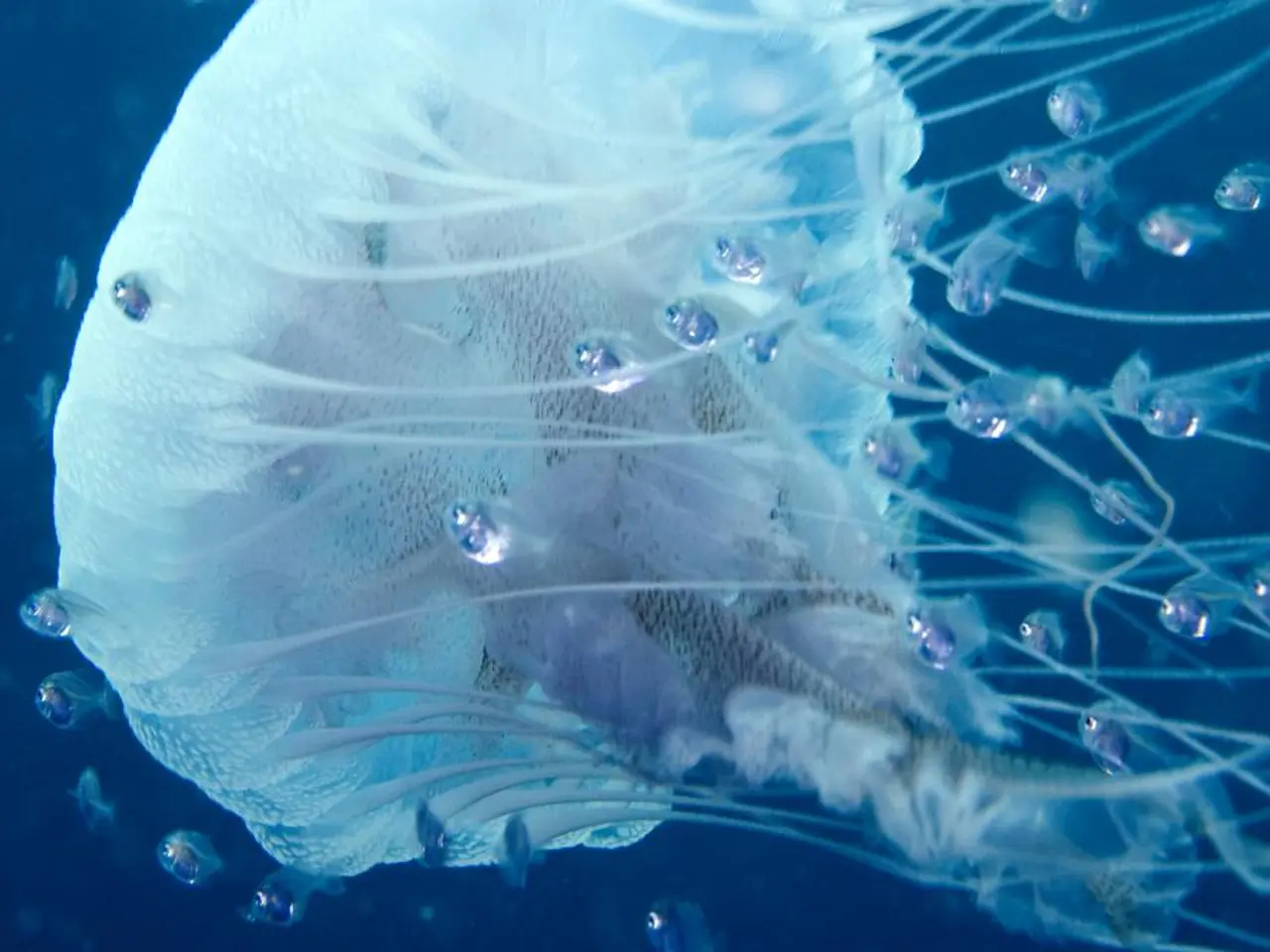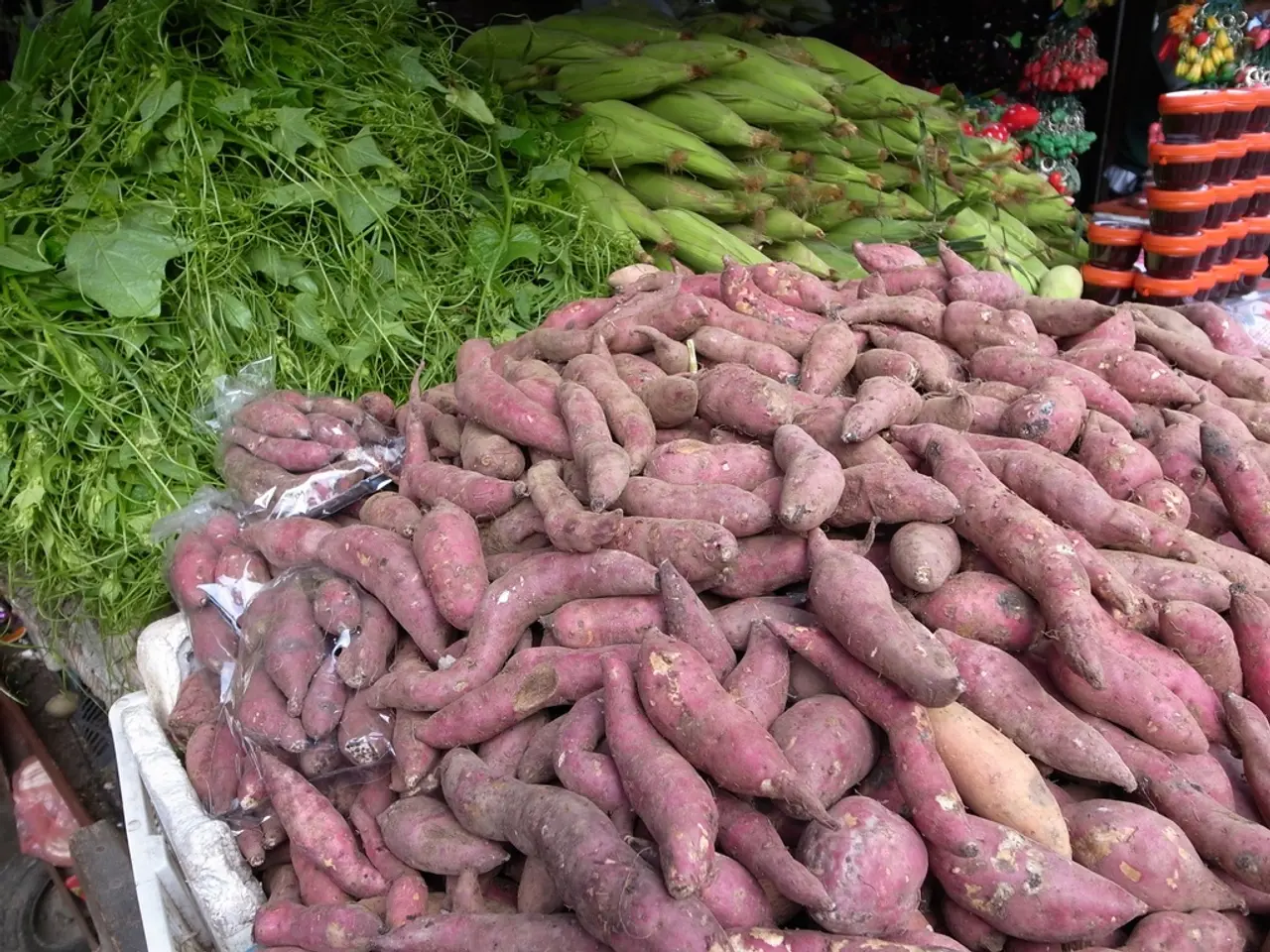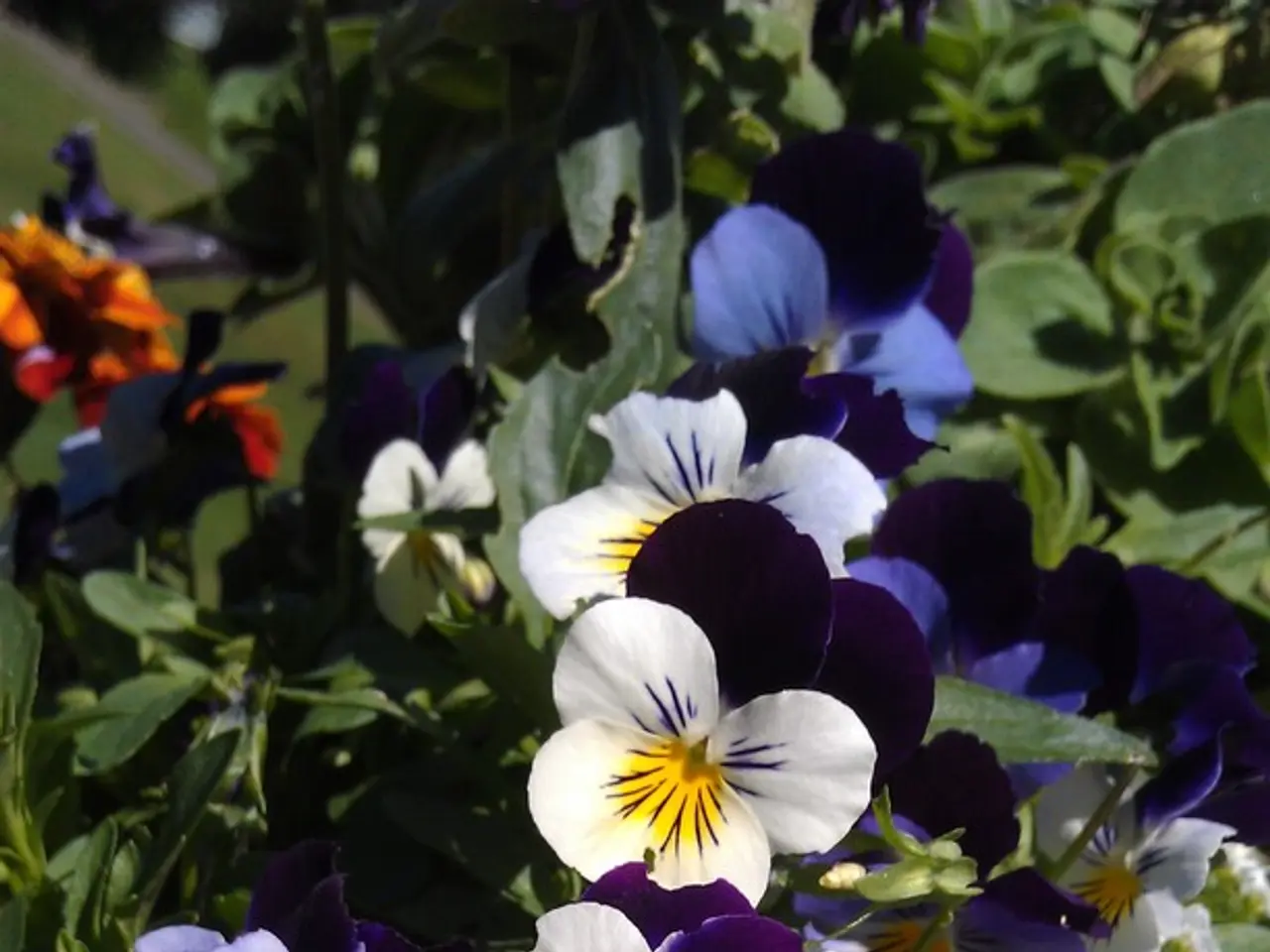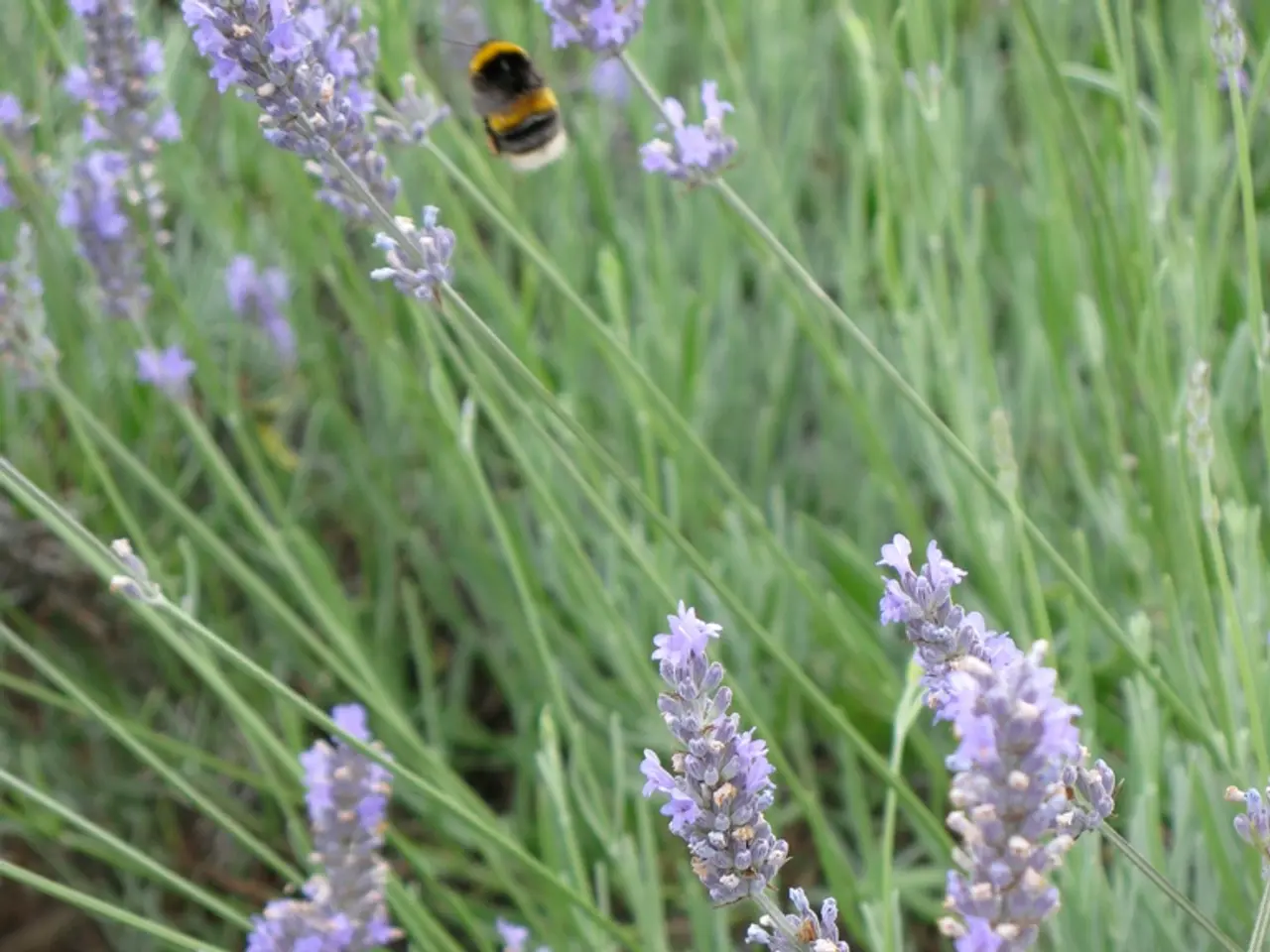Fascinating Insights into Clownfish: Their Essential Details!
Clownfish, with their vibrant colours and unique behaviour, make a delightful addition to any marine aquarium. Suitable for both beginners and seasoned aquarists, these fascinating creatures can coexist in community tanks with specific fish species like Gobies, Blennies, and Cleaner shrimp.
To ensure the health and longevity of your clownfish, it's essential to provide them with stable marine water conditions, ample space, and hiding spots that mimic their natural reef habitats. The minimum tank size should be at least 20-30 gallons for popular species like Ocellaris Clownfish, with larger tanks (50-60 gallons) recommended if housing anemones alongside them.
Maintain water parameters close to their natural marine environment: temperature between 72 to 78°F (22 to 26°C), pH levels between 8.0 and 8.4, water hardness of 7 to 12 dKH, and specific gravity of 1.020 to 1.026 (salinity measure). Regular water changes (15-25%) and parameter testing help maintain optimal water quality and reduce disease risk.
Clownfish are omnivorous and enjoy a varied diet that replicates their natural food sources. Their diet should include meaty foods like mysis shrimp, brine shrimp, krill, small crustaceans, and finely chopped seafood, as well as high-quality marine pellets and flakes formulated for clownfish or marine omnivores. Algae-based foods should also be provided to mimic their grazing behaviour on zooplankton and algae found in the wild. Feeding frequency should be 2 to 3 times per day with small portions to mimic natural feeding habits and promote health.
Quarantine new fish before introduction to prevent disease outbreaks, observe fish regularly for early signs of illness to allow prompt treatment, and maintain consistent water quality to strengthen the immune system and reduce susceptibility to infections.
After hatching, Clownfish fry should be moved to a separate tank. All clownfish are born male, but the dominant male in a group can change into a female if the existing female dies. The Clarkii Clownfish is a hardier, more robust variety with a yellow tail and more aggressive behaviour.
Clownfish are bred in captivity on a large scale, making them a more sustainable choice for home tanks. They are part of the Amphiprioninae subfamily and are native to the warm waters of the Pacific and Indian Oceans. Clownfish are highly territorial and known to defend their anemone homes fiercely, even against larger fish.
Intan Marine Wafers, a nutritious ornamental fish food with 38% protein, specially formulated for marine species like Clownfish, are made with sustainable crustacean protein sources such as Antarctic krill and squid meal. Intan Breeder & Grower Feeds are specifically formulated for Clownfish fry, providing high-quality nutrition for their early development.
A group of Clownfish is strictly ranked, with only the dominant pair breeding. Clownfish have a symbiotic relationship with sea anemones, living among their stinging tentacles due to a special mucus on their skin that protects them. It is possible to breed Clownfish in home aquariums, with a bonded pair laying eggs on a flat surface, which the male guards.
The Ocellaris Clownfish is the most common species, bright orange with clean white bands, while the Percula Clownfish is similar in appearance but slightly smaller and has more vibrant colouring. Despite their low-maintenance needs, caring for Clownfish requires diligence and attention to detail to ensure their health and happiness in your home aquarium.
- To maintain the health and vibrancy of your Clownfish, consider Intan Marine Wafers, a premium fish feed, specifically formulated for marine species such as Clownfish, made with sustainable protein sources like Antarctic krill and squid meal.
- For optimal growth and development, use Intan Breeder & Grower Feeds, a home-and-garden product designed specifically for Clownfish fry.
- As Clownfish are omnivorous, pets should be fed a variety of foods that mimic their natural diet, including home-grown algae, mysis shrimp, brine shrimp, krill, and high-quality ornamental fish food formulated for marine omnivores.




